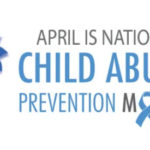National Lead Poisoning Week runs from October 22-28
Erie County, NY – The Erie County Department of Health (ECDOH) and Live Well Erie have these messages for anyone with a young child in their home: know your risks of lead poisoning and get children tested for lead at age one year and age two years.
“Lead poisoning prevention starts with awareness,” said Commissioner of Health Dr. Gale Burstein. “Most parents and caregivers take great care to remove dangers in their home that could injure their child, taking actions like installing baby gates at the top of staircases and using safety plugs in electrical outlets. But lead paint is an invisible hazard that is present in many homes, and it can cause developmental delays, learning disabilities, hearing loss and behavioral disorders that last a lifetime.”
National Lead Poisoning Prevention Week (NLPPW) runs from October 22-28, and has the backing of federal agencies like the Centers for Disease Control and Prevention (CDC), U.S. Environmental Protection Agency (EPA) and U.S. Department of Housing and Urban Development (HUD). Locally, ECDOH, Live Well Erie and the Buffalo and Erie County Lead Safe Task Force through the Community Foundation for Greater Buffalo also endorse all efforts to give families the facts about lead poisoning, encourage them to get their children’s blood lead levels tested, and for all residents to know their risk.
“The health and well-being of children and working families are central to our Live Well Erie initiative,” said Deputy County Executive Lisa Chimera. “Lead poisoning can be so devastating to a child, in ways that put limits on their future. We are confident in the work being done to identify and eliminate lead exposure and risks in our county, and to give all kids a chance to succeed.”
Get Your Child Tested
There is no safe blood lead level in children. Lead is a neurotoxin that damages the brain. Even low levels of lead exposure can cause serious and lifelong health impacts. Children should get tested for lead at age one and age two years, and as recommended by their pediatrician. When a child has a high blood lead level, other children in the household should also be tested.
ECDOH public health nurses provide case management in coordination with the family’s primary care provider for all lead poisoned children, while sanitarians conduct investigations and provides information to parents of children under age 18 years old that have tested positive for elevated blood lead levels. This is one of several county resources for lead poisoning prevention.
Know Your Risks of Lead Poisoning
The city of Buffalo has some of the oldest housing stock in the country. Properties built before 1978 are assumed to have lead present, since lead paint was commonly used before its dangers were well-known. ECDOH created a searchable database of all properties at www.erie.gov/leadsearch. Anyone can find the date that a property was built, and if that date was before 1978, you should assume that lead is present.
As lead paint degrades, especially on surfaces like windows and windowsills, doors and door frames, stairs, porches and bannisters, it will chip and flake and turn into dust. Those chips can be consumed by young children, or inhaled by anyone in the household.
ECDOH has resources for renters, homeowners and property managers on how to address lead paint contamination at www.erie.gov/lead, including free Lead Safe Work Practices training. Also, the ECDOH Office of Health Equity recently published its newsletter, Let’s Talk About Lead, which outlines sources of lead exposure and ways to reduce the risk of harm.












